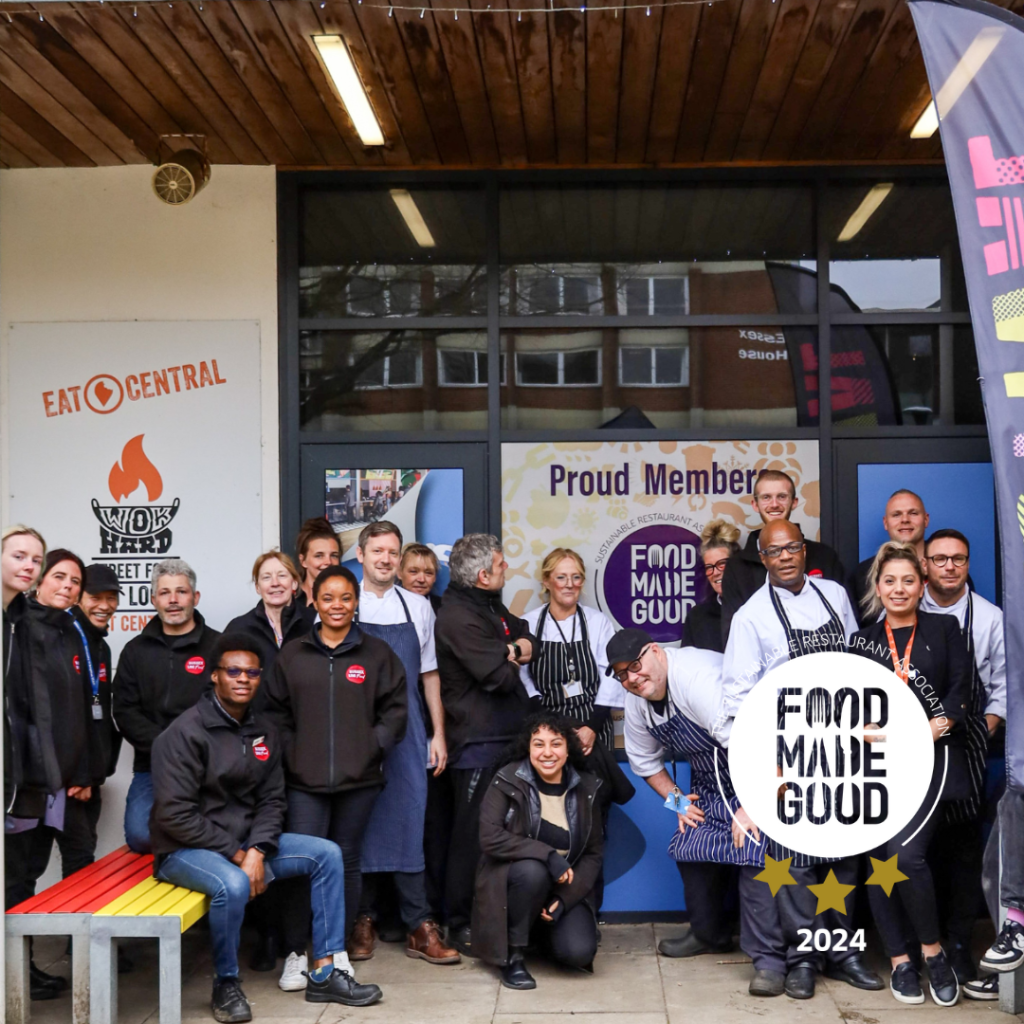Chartwells Universities has been awarded the highest accreditation available for its ongoing work at the University of Sussex’s Eat Central dining hub by The Sustainable Restaurant Association (SRA). The 92% score from The SRA’s Food Made Good Standard is the university’s highest rating to date and makes it one of 10 businesses worldwide rated over 90%.
The Food Made Good Standard is the world’s largest food and beverage sustainability accreditation, surveying over 10,500 professional kitchens worldwide across three pillars – Sourcing, Society, and Environment. Eat Central earned its three-star commendation for its commitment to sourcing high–quality, sustainable ingredients, managing its environmental impact, and providing nutritious, budget–friendly meals crafted by the university’s catering partner, Chartwells Universities.
As part of the University of Sussex’s mission to become one of the world’s most sustainable universities and Chartwells Universities’ wider group commitment to reduce its carbon footprint by 55% by 2025, the two organisations have worked closely together to refine menus, supplier lists and packaging.
This includes developing recipes that make use of by-products including broccoli stems, banana skins and coffee grounds, outlining goals to source 70% of fresh meat, dairy and vegetables from regenerative agriculture by 2030, and collaborating with Foodsteps to analyse and reduce the carbon footprint of menus.
Simple yet effective strategies have been implemented, such as switching to shallower containers, resulting in a 15% reduction in leftover food after service. Chartwells Universities also host free ‘Social Kitchen Sessions’ on campus to teach the community how to cook healthy, nutritious meals that minimise food waste.
The University of Sussex has consistently maintained a three-star rating from The SRA since its first assessment in 2019. This new score of 92% represents the university and Chartwells Universities’ commitment to world-leading sustainability practices and delicious, inclusive meals for students.
Mark Lawrence, Contract Director at Chartwells, said: “Attaining a 3-star rating from The Sustainable Restaurant Association underscores our commitment to environmental responsibility and social impact. It’s not just about individual efforts but the collective dedication of our entire team towards sustainable practices. This achievement reflects our shared values and demonstrates our ongoing commitment to making a positive difference at the University of Sussex.”
Helen Power-Hosking, Head of Commercial Services at the University of Sussex, said: “When we asked our campus community about their views on catering at the end of 2022, nearly two-thirds of staff and students told us they were worried about the environmental impact of the catering industry. As a result, we put sustainability at the heart of the new contract when we renewed with Chartwells for the next 10 years, so I’m delighted to see all these efforts being recognised already with these ratings.
“This accreditation is a testament to the hard work from the whole team and it’s clear that our whole campus community is benefitting as a result.”
Juliane Caillouette-Noble, Managing Director at The Sustainable Restaurant Association, said: “Congratulations to Eat Central Kitchen at the University of Sussex for achieving three stars once again in their 2024 Food Made Good Standard submission. With a remarkable score of 92, they join just 10 other businesses worldwide in the 90+ bracket – a testament to their comprehensive approach across all evaluated impact areas.
“From sourcing a high percentage of produce from regenerative farms, with goals and actions to improve this in the future, to robust strategies for reducing food waste, we admire the way they use simple yet effective techniques. Well done for providing our young adults with the foundation they need to become influential advocates for food sustainability.”
The commitment to sustainability does not stop there for Eat Central. The dining hub is currently undergoing renovations to become a flexible, eco–friendly space for both daytime and evening activities, with a refurbishment including recycled worktops and upholstery, waste separation bins, and a bio processor to convert food waste into fertiliser.



